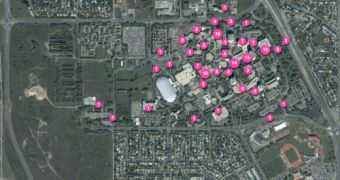It doesn’t sound like such a big deal if a soldier tells a girl he met on Facebook a thing or two about his mission. However, when a Taliban insurgent hides behind the fake profile of a “woman,” it’s a whole different ball game.
According to a report from the Australian Department of Defence, social media websites such as Facebook pose a lot of risks and jeopardize important military operations, News.co.au reports.
One of the main problems is that soldiers share all sorts of details with their family and friends. Furthermore, the fact that many use geotagging features when publishing content on a social network is another serious issue.
More recently, Taliban insurgents have started creating fake Facebook profiles in order to befriend Australian soldiers with the purpose of gathering intelligence.
The most worrying fact is that most Department of Defence members have no clue that their actions could have an unwanted outcome.
“Most did not recognise that people using fake profiles, perhaps masquerading as school friends, could capture information and movements. Few consider the possibilities of data mining and how patterns of behaviour can be identified over time,” the report reads.
Authorities have been aware of these issues since March, but so far they haven’t done anything in particular to educate soldiers, their families and their friends. Officials hope that a guide will be released by Christmas.
The Australian government isn’t the only one concerned about the impact of Facebook and such on military operations. Back in March, US Army representatives expressed their concerns regarding applications such as Foursquare, Shopkick, Loopt and others that revealed the GPS coordinates of customers.
The fact that the metadata stored in pictures can reveal a lot of information is not new. It has been utilized to catch hackers and even individuals who stomp on your lettuce at Burger King.

 14 DAY TRIAL //
14 DAY TRIAL //